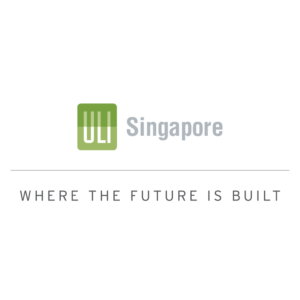Top Story
PGIM Real Estate Nurtures Talents in Real Estate
PGIM Real Estate is the first ULI Asia Pacific Corporate Partner to fund ULI student memberships.
22 August 2022
Amanda Wong, Partners Group
In the seventh instalment of the Up Close and Personal series, the student members sat down with Cheng Hsing Yao, CEO of GuocoLand. In a discussion facilitated by Young Leaders Group (YLG) member, Amanda Wong, the students asked Hsing Yao about his progression from the public to the private sector, his take on the latest real estate development trends, and his work philosophy.
The conversation began with an insider’s look into Hsing Yao’s career journey. Right after graduating with a Bachelor in Architecture, he spent the first 15 years of his career in the public service – at the Urban Redevelopment Authority (URA), where he worked on policy planning. He then took the off-the-beaten path and spent the subsequent decade at GuocoLand, a premier real estate developer, where he now takes the helm as CEO.

When asked about his career transition from the public to the private sector, Hsing Yao shared that his unique perspective in the public sector helped him pay attention to aspects typically overlooked by more traditional developers, such as the community and public spaces when it comes to assessing development opportunities. In fact, he “does not see neighbouring buildings as competitors because when the neighbourhood benefits, we benefit too,” he said. Nonetheless, he admitted that the move was accompanied by a steep learning curve and encouraged the student members to believe in their capacity to persevere when faced with challenges.

Students from architectural disciplines also took the opportunity to understand how Hsing Yao leveraged his skillsets to become a successful business leader. Hsing Yao advised that there are many aspects to real estate development and every discipline has its strength. In his case, he leveraged his strengths in design thinking to drive product innovation, which is crucial to GuocoLand’s strategy amid the competitive land prices today. For instance, GuocoLand was an early mover in the trend towards hybrid working – having implemented a “Core and Flex” office concept at Guoco Midtown in 2018, even before the pandemic. Unlike traditional leasing strategies, it provides tenants a flexible option to take up short-term workspaces alongside their long-term leases. His ability to anticipate the needs of end-users, even before they know it, certainly impressed the student members.
Beyond the technical aspects at work, Hsing Yao stressed the importance of authenticity. He encouraged the student members to focus on building genuine relationships and more importantly, focus on being of service to others, because “respect is earned when you deliver results”. It was through these interactions that he was able to form a circle of trusted advisors; advisors that he could rely on as a sounding board, and who could point him in the right direction. He advised that establishing such relationships can serve as a pillar of support for students as they kickstart their career.
We encourage students to join ULI and gain access to knowledge and peers as we work as a community to shape the future of the built environment for transformative impact in communities worldwide. To find out more, email [email protected]
ULI Singapore thanks GuocoLand for hosting this dialogue.

Don’t have an account? Sign up for a ULI guest account.